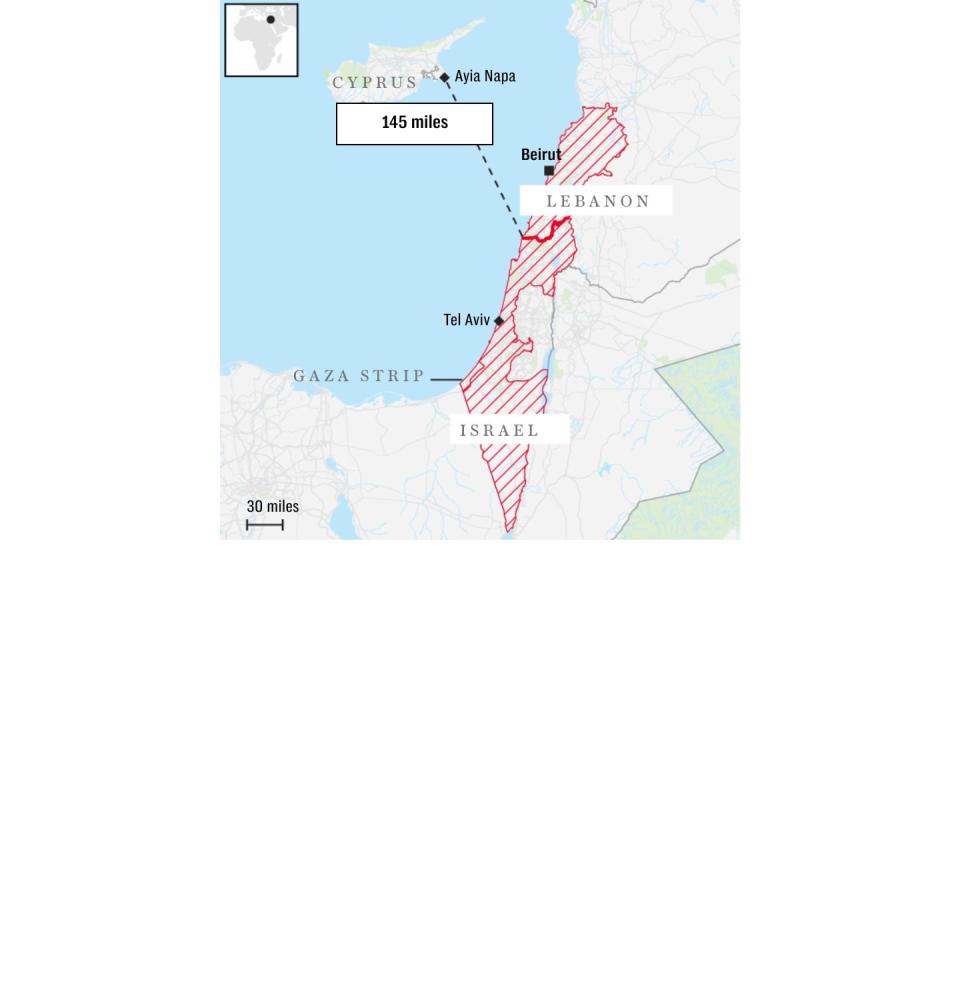What the Middle East conflict means for travellers, as airlines cancel flights to Dubai

Missiles are being fired in the Middle East. Missiles are being fired in the eastern Mediterranean. Both of these statements are true, but one of them makes the conflict seem quite far away, while the other serves as a reminder that Israel and Lebanon are closer to your holiday destination than you might realise.
The events in the Middle East are extremely distressing, and worrying about your upcoming holiday might feel trivial against the backdrop of lost lives and displaced families in Israel, Lebanon and Gaza. But tens of thousands of British families will travel abroad this half term, and it is understandable that many will be asking questions.
To refresh your world geography: the eastern tip of Cyprus is just 100 miles away from the port of Selaata in Lebanon – the same distance as London to Birmingham. Egypt shares a 128-mile border with Israel and a crossing into the Gaza Strip at Rafah. Turkey’s Turquoise Coast is 320 miles away from Lebanon, the equivalent of the distance separating London and Belfast.
Where holidays to Cyprus are concerned, flights are running as usual and tour operators are gearing up to send tens of thousands of Britons to Larnaca and Paphos over half term. But it is worth being aware that the island has not been untouched by the rising tensions in the Middle East.

In June, Hassan Nasrallah, the (recently killed) leader of Hezbollah, warned that Cyprus would become a target if it opened its airports or air bases to Israeli forces. In response, the Cypriot president said the country was in no way involved in the conflict. The only time a missile has landed in Cyprus in recent memory was in 2019, when a Syrian missile (aimed at an Israeli aircraft) crashed into a mountain in northern Cyprus, without any casualties.
While the government of Cyprus is not involved in the current conflict involving Israel, Lebanon and Iran, the island of Cyprus is tacitly embroiled. The UK has two military bases on the island, and this week 700 British troops arrived at RAF Akrotiri to assist with a possible evacuation of British citizens in Lebanon. After Iran’s attack on Israel, John Healey, the Defence Secretary, said British forces “played their part” in de-escalating the conflict, and that would likely have involved personnel and jets based at Akrotiri.

This might all sound a bit concerning if you have a holiday booked. One consideration is that Cyprus has long sat on the frontline of Middle Eastern wars without any impact on civilians or tourists. The RAF has been based there for 69 years. Yes, you may observe heightened airport security measures on arrival. You may also encounter a peaceful demonstration – there have been a number outside RAF Akrotiri. But at the time of writing the Foreign, Commonwealth and Development Office (FCDO) has not issued an advisory against travel to the island.
Potential risks
The FCDO has, however, this week added a note to all of its coastal North African and Middle Eastern advice pages. “Ongoing hostilities between Israel and Lebanon could escalate quickly and pose risks for the wider region,” it warns, adding that you should monitor the FCDO’s social media channels and other media, as the situation is “changing fast”.
Among those countries with the new note are some holiday favourites. Sharm El Sheikh (Egypt), Marrakech (Morocco), Dubai (UAE) and Sousse (Tunisia), for example. But the FCDO still classifies these holiday destinations as safe to visit. If you do decide to cancel your trip, bear in mind that, because the Foreign Office has not issued any advice against travel, it is unlikely that you will receive a refund, nor will you be able to claim money back with your travel insurance company.
A final consideration, particularly for people travelling on longer eastbound journeys, is that on Tuesday several airlines were forced to adjust their flight routes at the last minute due to airspace closures in Iran, Israel, Jordan, Iraq and other countries. In total, 81 flights were diverted by 16 airlines, according to the airspace-tracking website Flightradar24, including a British Airways flight from London to Dubai which was diverted to Larnaca in Cyprus.
Emirates has also advised that all flights transiting via Dubai to Iran, Iraq and Jordan on Friday October 4 and Saturday October 5 would be cancelled, and customers would be turned away at their point of origin. A number of Emirates and flyDubai flights to Dubai have been cancelled this week, due to the knock-on impact of pilots having to take longer routes due to airspace restrictions in the Middle East. It is likely there will be more disruption caused by airspace closures in the event of further missile strikes in the region.
As it stands, your half-term getaway is going ahead. And unless there is a major escalation in the Middle East, that will remain the case when late October rolls around. For peace of mind, set up an alert for your relevant FCDO advice page, and check the Telegraph’s dedicated advice pages to Cyprus, Turkey, Egypt, Morocco, Tunisia and Dubai, which will be updated regularly.


